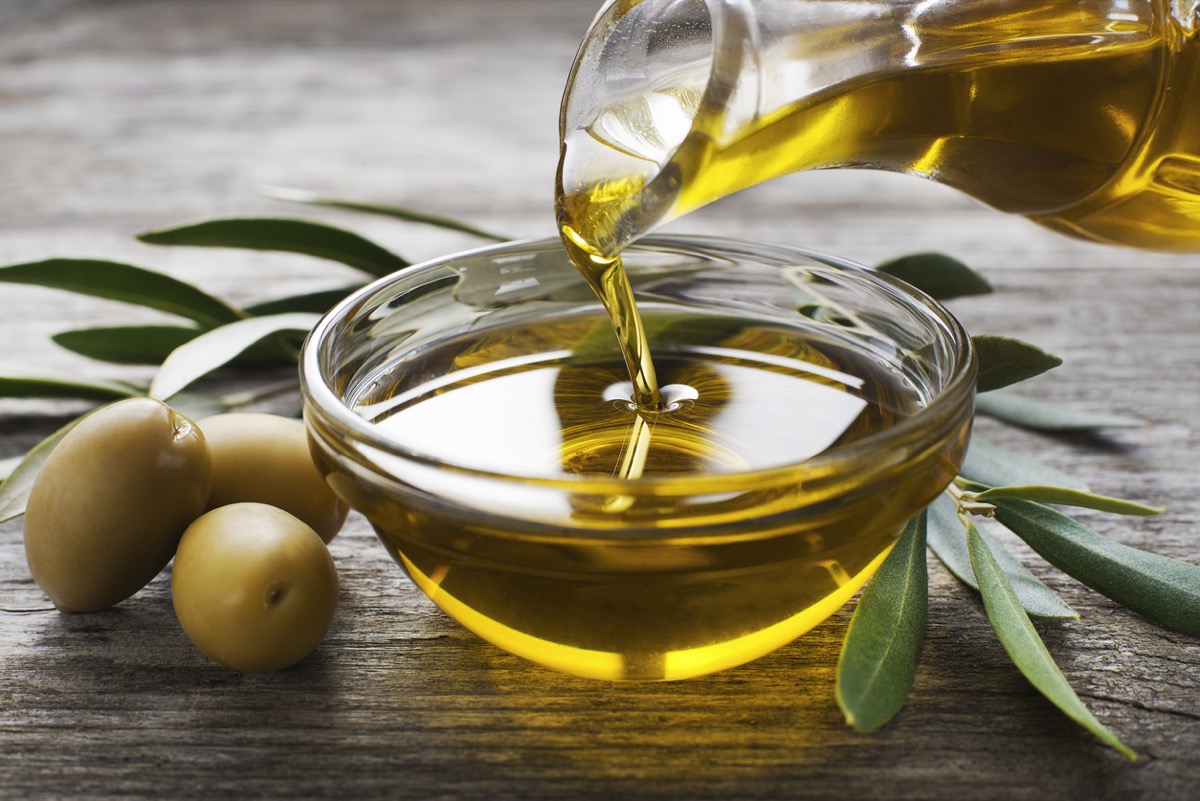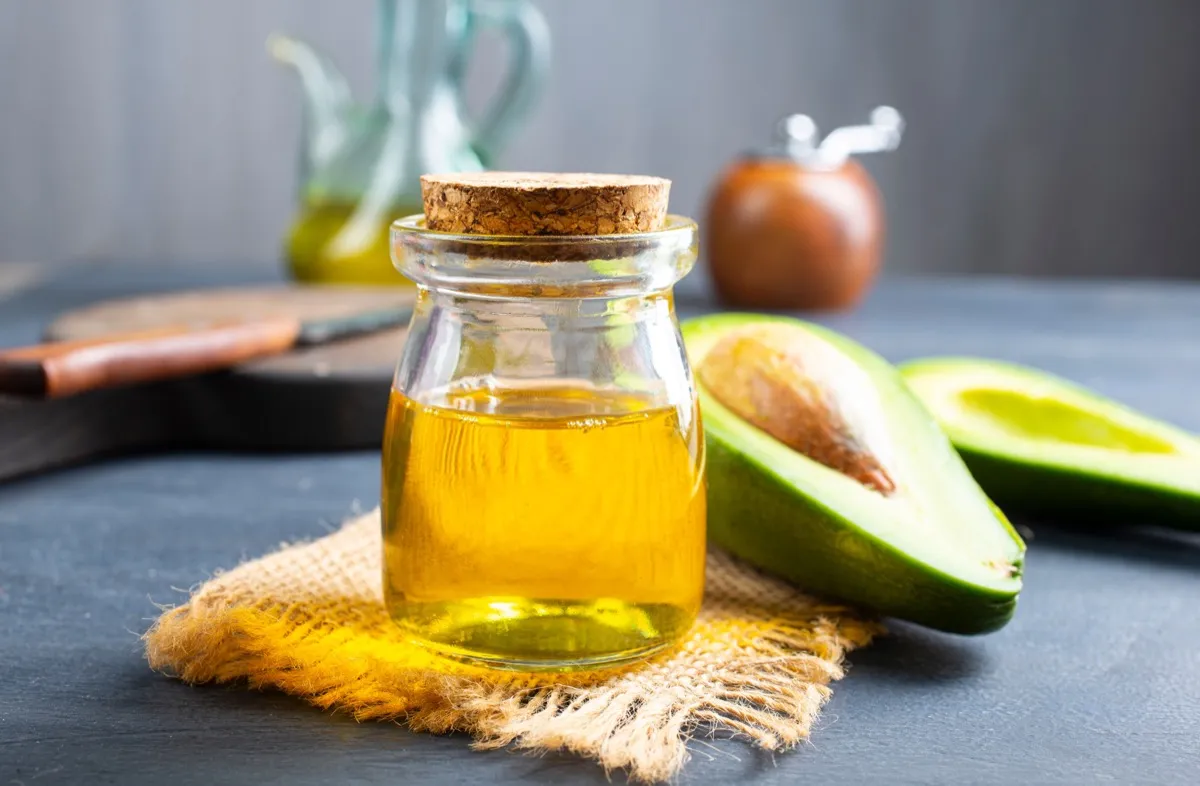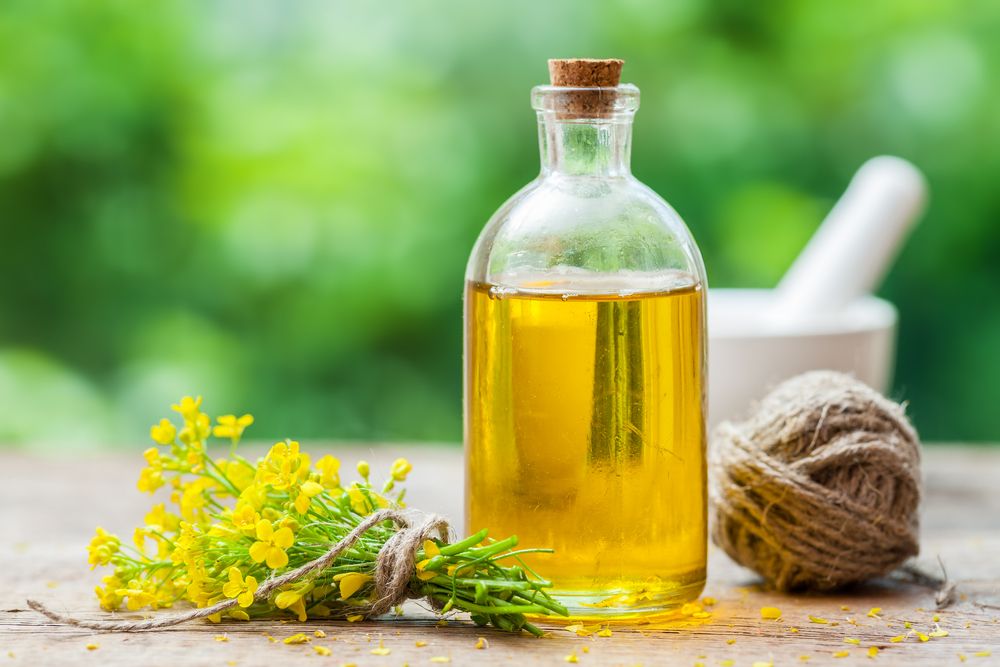Which Cooking Oil Should You Use, and What Are the Benefits of Each?

When you cook, how you choose to prepare your food can make or break its contribution to your health. In particular, your cooking oil makes an especially outsized impact on nutrition, depending on its type and quality. For instance, sautéing a dish of protein and vegetables in high-quality oil that’s rich in healthy fats makes for a healthy meal. But take those same ingredients and deep fry them in a lower-quality oil, and you’ve undermined your best intentions.
There are a few common oils you should generally plan to avoid, dietitians say. These include corn oil, soybean oil, blended oils, and partially hydrogenated oils, which are high in saturated fats and low in monounsaturated fats like omega-3s.
Then there are oils that are nutritious but have a low smoke point—meaning they tend to break down when exposed to high heat. For example, though flaxseed oil and walnut oil are rich in alpha-linolenic acid—an essential omega-3 fatty acid with anti-inflammatory properties—these are ideally suited for drizzling over a cold dish.
So, which is the best oil for cooking? Dietitians have the answer. Read on to learn the five best oils to try for healthier cooking habits.
RELATED: 36 Pantry Staples Every Home Cook Needs.
1
Extra virgin olive oil

A hallmark ingredient found in the longevity-boosting Mediterranean diet, extra virgin olive oil (EVOO) is a high grade oil made from the first pressing of an olive harvest. Though some people argue that EVOO is best reserved for dressing rather than cooking due to its rich flavor, others say that this is merely a matter of preference—and that the health benefits of EVOO outweigh other considerations.
Studies show that all high-quality olive oils come with health benefits, thanks to at least 36 polyphenolic contents, which have “potent anti-mutagenic, anti-inflammatory, anti-thrombotic, anti-atherogenic and anti-allergic effects,” says a 2021 study published in Frontiers in Pharmacology. In particular, these have been demonstrated to protect against neurodegenerative conditions and cardiovascular diseases, the study authors write.
Extra virgin olive oil has a smoke point of 410°F, making it suitable for sautéing, roasting, and frying.
2
Avocado Oil

Like extra virgin olive oil, avocado oil is full of healthy fats. Its mild flavor blends well in a range of cuisines—and no, it won’t make everything taste like avocados.
“Avocado oil is a cooking oil I use in my home and recommend to my clients for heart health due to its high content of monounsaturated fats, which has been shown to help support lower cholesterol levels and protect blood vessel health,” shares Michelle Routhenstein, MS, RD, a preventive cardiology dietitian at Entirely Nourished. “Avocado oil has a high smoke point which ensures that it remains stable during cooking, preserving its heart-healthy properties.”
Jennifer House, MSc, RD, a dietitian, nutritionist, and author working with First Step Nutrition, agrees that this feature makes it easy to cook with. “The smoke point is 520°F for refined and 482°F for unrefined avocado oil. Unlike most oils that have much lower smoke points for the unrefined version, you can use unrefined or refined to cook at high temperatures,” she notes.
RELATED: The Best Non-Toxic Cookware for the Healthiest Meals.
3
Canola Oil

Canola oil tends to get a bad rep, but many experts say it’s one of the healthiest refined vegetable oil options on the market.
“Canola oil is generally considered a ‘healthy’ oil because it is very low in saturated fat (seven percent). Like olive oil, it is high in monounsaturated fat (63 percent),” explained Guy Crosby, PhD, Adjunct Associate Professor of Nutrition at Harvard T. H. Chan School of Public Health, in an article for Harvard Health.
He notes that canola oil also contains a significant level of polyunsaturated omega-3 fat (9-11 percent). “In addition, canola oil contains significant amounts of phytosterols (about 0.9 percent by weight) that reduce the absorption of cholesterol into the body,” he adds.
Crosby points out that many people are concerned with canola oil’s trans-fat content since trans-fats have been linked with significant health problems, including high cholesterol and increased risk of heart disease.
“In fact, canola oil does contain very low levels of trans-fat, as do all oils that have been deodorized. Deodorization is the final step in refining ALL vegetable oils. This process produces the bland taste that consumers want,” says Crosby.
Canola oil is also widely viewed as one of the most versatile cooking oils, thanks to its mild flavor and high smoke point of 430°F for refined oil.
4
Sunflower Oil

“Sunflower oil is high in Vitamin E, which functions as an antioxidant and anti-inflammatory in our body,” explains House. It also has a relatively high smoke point of 450°F for refined sunflower oil, meaning it can withstand cooking at high temperatures without degrading.
As is the case with all vegetable oils, it’s important to choose one that’s made with 100 percent pure ingredients rather than a blend of various oil types.
RELATED: 40 Best Kitchen Items on Amazon.
5
Grape seed oil

Grapeseed oil is low in saturated fat and high in linoleic acid (LA), a type of omega-6 polyunsaturated fat (PUFA). Though some studies have linked a high intake of omega-6 with increased inflammation, omega-6 from healthier sources is associated with a reduced risk of cardiovascular disease, according to the American Heart Association (AHA).
“Grape seed oil is rich in phenolic compounds, fatty acids, and vitamins,” says a 2016 study published in the journal Nutrition and Metabolic Insights. “Grape seed oil has beneficial properties for health that are mainly detected by in vitro studies, such as anti-inflammatory, cardioprotective, antimicrobial, and anticancer properties, and may interact with cellular and molecular pathways.”
It also has a smoke point of 420°F, making it a practical all-purpose oil for many of your cooking needs.
- Source: Frontiers in Pharmacology: Olive Oil: Nutritional Applications, Beneficial Health Aspects and its Prospective Application in Poultry Production
- Source: AHA: Omega-6 Fatty Acids and Risk for Cardiovascular Disease
- Source: Nutrition and Metabolic Insights: Grape Seed Oil Compounds: Biological and Chemical Actions for Health